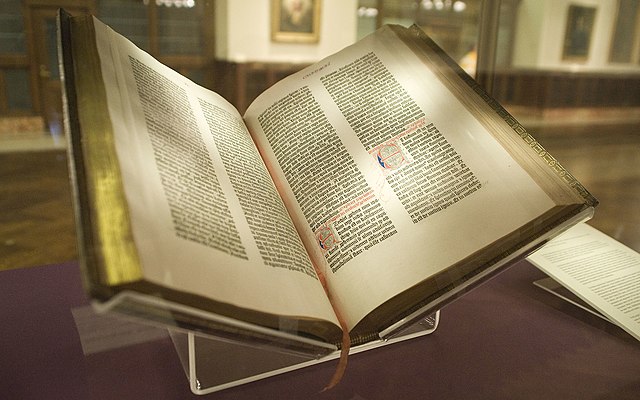Content deleted Content added
m |
|||
Line 13: The Jewish Bible ([[Tanakh]]) consists of 24 books, and to a large extent overlaps with the contents of the Christian [[Old Testament]], but with the books differently ordered. The Tanakh consists of the five books of [[Moses]] (the [[Torah]] or [[Pentateuch]]), a section called "Prophets" ([[Nevi'im]]), and a third section called "Writings" ([[Ketuvim]] or Hagiographa). The term "Tanakh" is a Hebrew acronym formed from these three names. Although the Tanakh was mainly written in [[Biblical Hebrew]], it has some portions in [[Biblical Aramaic]]. Some time in the [[3rd century BC The collection of books that the great majority of Christians (including members of the [[Roman Catholic Church|Roman Catholic]], [[Eastern Orthodoxy|Eastern Orthodox]], and [[Oriental Orthodoxy|Oriental Orthodox]] Churches) call the [[Old Testament]] include not only the 24 books of the Jewish Tanakh, but also certain [[deuterocanonical books]] preserved in the Greek of the Septuagint. The [[Roman Catholic Church]] recognizes seven such books ([[Book of Tobit|Tobit]], [[Book of Judith|Judith]], [[1 Maccabees]], [[2 Maccabees]], [[Wisdom of Solomon]], [[Sirach|Sirach (Ecclesiasticus)]], and [[Book of Baruch|Baruch]]), as well as some passages in [[Book of Esther|Esther]] and [[Book of Daniel|Daniel]], that are not included in the Jewish Scriptures. Various Orthodox Churches include a few others, typically [[3 Maccabees]], [[Psalm 151]], [[1 Esdras]], [[Odes]], [[Psalms of Solomon]], and occasionally even [[4 Maccabees]]. Protestants in general do not recognize these books are truly part of the Bible, though they may print them along with the books they do recognize. Line 27: ==The canon of Scripture== For Jews, it is commonly thought that the canonical status of some books was discussed between [[200 BC To the books accepted by Jews as Scripture all Christians add those of the [[New Testament]], the 27-book [[canon]] of which was finally fixed in the [[4th century]]. As indicated above, most Christians also consider certain deuterocanonical books to be part of the [[Old Testament]]. Protestants, in general, accept as part of the Old Testament only the books in the Jewish canon and use the term [[Apocrypha]] for the deuterocanonical books. They have a 39-book Old Testament canon – the number varies from that of the books in the [[Tanakh]] because of a different way of dividing them – while the Roman Catholic Church recognizes 46 books as part of the Old Testament. For details, see [[Books of the Bible]]. For a history of the canon, see [[Biblical Canon]]. | |||
 Article Images
Article Images